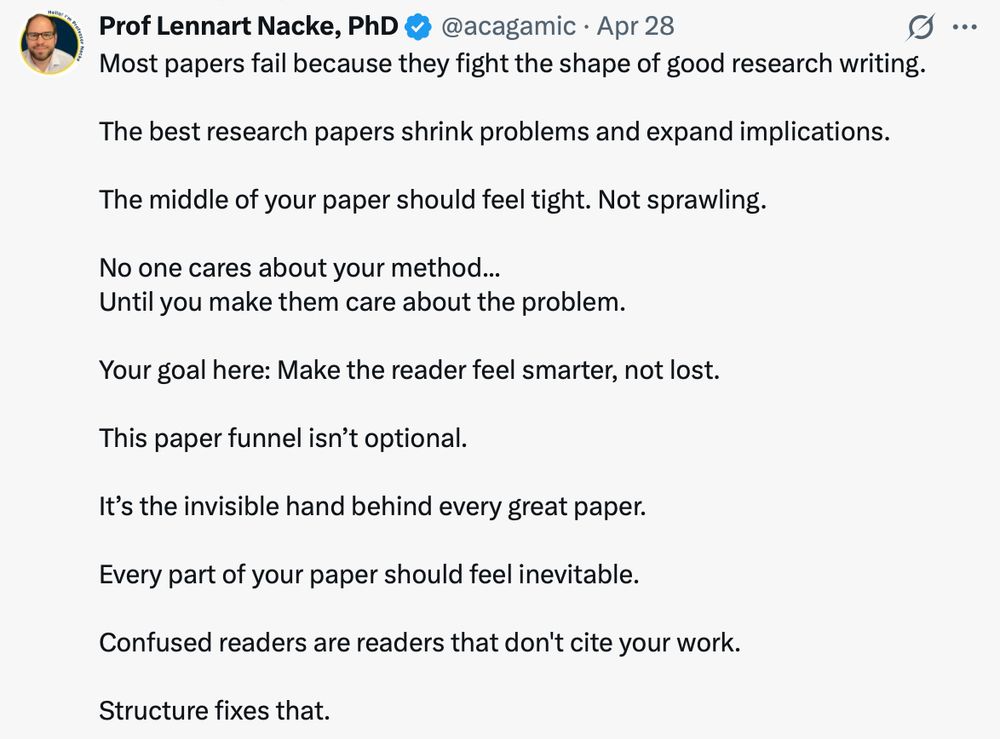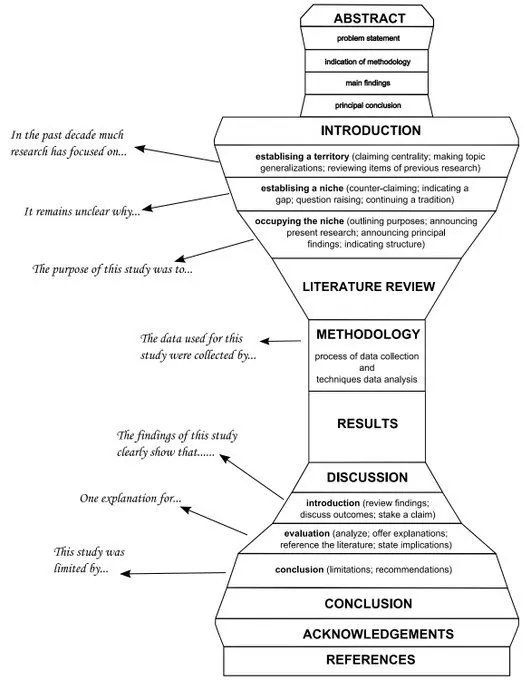Agreed, that was awful - the methods are easily the most important thing in the study. Also hate when journals put the methods after the results or *shudder* in the supplementary
Replies
I don't even like when they put it in a smaller font

agreed!, interesting that it is coming from a 'PhD' as I've experienced that there are more PhD's who are inclined to bs than MD's, for sure... I always look up to the clinician first and foremost!, #bestofthebest 🤓😀🙏
Somewhat surprised by the vitriol, he's not definitely wrong and he certainly doesn't say methods are unimportant. It seems pretty logical that if you are unimpressed (or don't understand) the results, the methods section would be useless (to you), no?
I have extra vitriol in social-space so I can be extra nice in meat-space
Ah well i think we all understand that trade off 😆
Dude is a professor of…video games
i mean, this is somewhat accurate for a CNS paper (but ignores the 10k word supplement with all the methods)
Agreed. Just because methods are vital, it doesn't mean the reader will go through them with a fine tooth comb. That's what supplementals are for. I disagree with some things in that diagram (e.g. the Results should be as neutral as possible, leave interpretation for discussion), but not all.
Completely agree! Our style is opposite: very short/tight introduction to avoid loosing immediately the reader, long and detailed methods and results (with additional details in supplement), and short discussion again (and if you don't have time, skip it and read only the limitations)
I hate this trend in the reporting of the scientific literature. It reminds me of the push to rely on visual abstracts as the primary means of communicating a study because this format also tends to deemphasize the methods to the point that limitations are often no longer identifiable.
totally agree. the devil is in the methodological details. this mentality surely drives the fact that the results of so many papers can’t be replicated. the methods don’t have to be long but they have to be accurate, esp when so many papers use more and more complex stats to make their point.
Literature review in the intro? I’m going to have to skip even more before the important bits?

